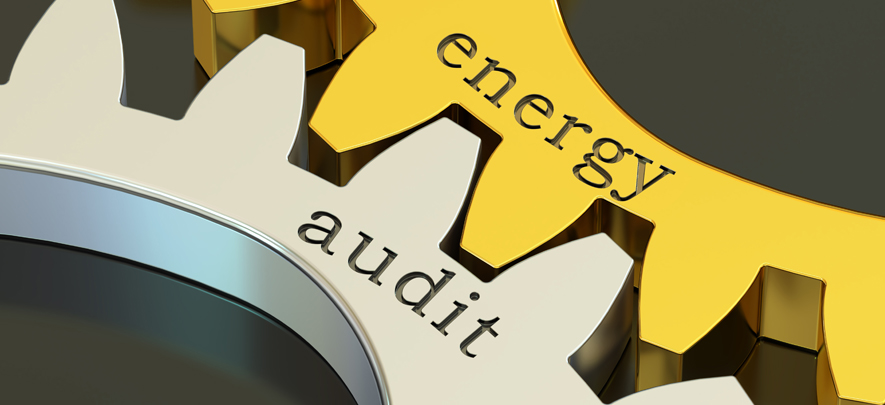How energy audits can help MSMEs reduce energy cost

Environment
285 week ago — 8 min read
Background: Energy audits can play a vital role in energy savings, especially for micro small and medium enterprises opines Shashi Bhushan Pandey. He explains the concept of energy efficiency in detail and makes a case for regular energy audits by MSMEs.
Concept of energy, energy efficiency and energy performance
The term energy comes from the Greek word ‘energo’ which means activity. When any energy is consumed some work must be done. For instance, a diesel car has a 30 kilowatt (kW) engine but is standing in the portico so no energy source (diesel) is consumed and but it has the power of 30 kW. Now when the car is started, diesel is consumed and the car starts moving. Let us assume the car is running for 1 hour, covers 60 kilometers and it consumes 4 liters of diesel. It means 4 liters of diesel as energy source is consumed, and produces a car output of 30 kW X 1 hour which is equal to 30 kWh energy to travel a distance of 60 km. Although 4 liters of diesel depending on its calorific value (say 10, 600 Kcal/ litre) has an energy of 4x 10.6 kWh =42.4 kWh energy. The efficiency of the car engine will be output/input = 30/42.4 = 0.70 or 0.70 x 100 = 70%.
It means 30% energy was lost in the engine in combustion and heat losses. Normally we measure electrical energy in kWh, thermal energy in kcal/kg of energy source but international unit of energy is joules.
Energy audit is an impartial, systematic and documented process to find energy wastage/ losses, assessing how the wastage and losses can be eliminated or minimised and recommending action plans to reduce the energy consumption of an organisation.
Energy can be converted from one unit to other by using multiplying factors. Energy has many forms and it can be converted from one form to other form like steam energy converted to electrical energy through turbo generators in power plants. Energy can neither be created nor destroyed. It is the inherent property of that energy source like 1 kg of coal may have calorific value from 2400 - 5000 kcal/kg depending upon the quality of coal.
Types of energy
Electricity, fuels, steam, heat, compressed air and other similar media are called energy. Energy refers to the various types of energy, including renewable, which can be purchased, stored, treated, used in an equipment or in a process, or recovered. These include energy from the sun, wind, water, biomass etc. The other classification is of non-renewable energy like coal, petroleum products like diesel, petrol, LPG, LDO, HFO etc which are extracted from crude oil through distillation process. Crude oil, coal, lignite all come from mother earth and has a limited life and are therefore classified as non-renewable sources of energy.
Energy efficiency
Energy efficiency is the ratio or other quantitative relationship between an output of performance service, goods, commodities, or energy, and an input of energy. Both input and output should be clearly specified in terms of quantity and quality and be measurable.
Also read: We have always used solar power & it can power our future
Energy performance
Energy performance refers to measurable result(s) related to energy efficiency, energy use and energy consumption. Energy performance can be measured against the organisation’s objectives, energy targets and other energy performance requirements.
In the above mentioned example if the car has run 60 km in 4 liters of diesel, then car energy performance could be 15 km/ liter of diesel consumed. The organisation may choose how to define energy performance for its processes, plants and equipment. There could be energy variables. For instance, in the example mentioned, energy performance will vary when only one person is travelling or when there are five passengers and 300 kg luggage in the dickey also. Naturally in the second case energy performance of the car will be lower.
There could be so many other energy variables which may impact energy performance like driver skill, road condition, slope of the road, number of traffic lights on the route, atmospheric temperature, wind direction, humidity etc. It means all the energy variables have to be identified for each process and equipment and accounted for their impacts when calculating the energy performance, energy efficiency of a process, plant or equipment.
Also read: Innovation in e-commerce packaging: Key to a sustainable future
What is energy audit?
Energy audit is an impartial, systematic and documented process to find energy wastage/ losses and analysing and evaluating the data from measurement and other sources and assessing how the wastage and losses could be eliminated or minimised and recommending action plans to reduce the energy consumption which will reduce the energy cost and increase profitability of the organisation without any compromise on quality, quantity and comfort of the people working in the organisation.
Every industry whether small or big needs energy to carry out their operations. Normally in micro and small-scale industries following are the energy sources which are used:
- Coal
- Electricity
- Diesel
- LPG
- Rice husk
- Wood
- Heavy fuel oil
- Light diesel oil
- Petrol
- Natural gas & other gasses which could be used as energy
- Steam
- Compressed air
All such energy sources are used either in the processes or in equipment to power the driven equipment or for heating/cooling and it has been estimated that 10 to 30% of energy either gets wasted due to resource crunch; habits of operating staff; unawareness and ignorance; use of inefficient equipment; non-efficient operation; non-optimised size of the equipment; lack of knowledge of latest energy efficient technologies and equipment; operating people not trained to required competence matrix required for the job; old equipment and processes and lack of top management awareness and involvement for energy efficient operation and its advantages.
It is highly recommended that all micro and small industries must go for energy audits at every three years frequency through a competent and experienced energy audit agency so that at least 10% to 30% energy saving could be achieved in their energy bills. This could be a major booster for their profitability keeping in view the fact that energy sources costs are going up every day and will continue to go up in the near future too. For survival and to remain competitive, energy cost is one untapped area which should be fully explored. Cost of energy audit would be hardly 10% to 20% of the value of the energy saving which could be achieved in a year.
Image source: shutterstock.com
To explore business opportunities, link with me by clicking on the 'Connect' button on my eBiz Card.
Disclaimer: The views and opinions expressed in this article are those of the author and do not necessarily reflect the views, official policy or position of GlobalLinker.
Posted by
SHASHI BHUSHAN PANDEYI am SHASHI BHUSHAN PANDEY BE (ELECT )HONS 1969 BATCH . Worked with Indian Oil Corporation Ltd.for 39 years in Pipeline Division. Gained experience in design, Project...
Network with SMEs mentioned in this article
View SHASHI BHUSHAN 's profile
Most read this week
Trending










Comments (1)
Share this content
Please login or Register to join the discussion